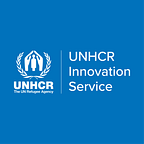Taking a rights-based approach to disability inclusion at UNHCR
When we talk about persons with disabilities in UNHCR, it’s not a medical conversation. The discussion around the challenges of persons of concern or colleagues with impairments, physical or mental, visible or invisible, is not a debate that runs in isolation from the diversity and inclusion debate. Disability inclusion is a rights issue and the onus is on us to change in the same way that our initiatives on gender equity or LGBTI rights demand cultural and behavioural change in our systems and workplaces. When someone with a physical impairment seeks to have safe access to a building or operation space, it is the organisation that risks leaving expertise at the doorstep. Where an organisation fails to make their modus operandi accessible, they turn impairments into disabilities; the environment excludes, not the impairment. The frontline of this challenge is where the discussion around disability is medicalised or siloed, it is where the vulnerability of those with impairments is emphasised at the expense of their agency and professionality, and it is where our misconceptions of disability inhibit us from ensuring equal opportunity and access to services.
It’s easy to get caught up in words when discussing disability. But we still need to have the conversation. Think about some guiding principles: it’s a rights issue, it’s an inclusion issue, vulnerability and exclusion are created by the environment, we are not overcoming the impairment, we are making the environment more accessible.
Consider these action points to reflect on your own behaviours in the workplace:
- Challenge your assumptions and biases about what it means to have a disability.
- Communicate with colleagues with disabilities about their accessibility challenges.
- Consider how the environment and communication can be more inclusive — from communication formats to reasonable accommodation provisions.
- Stay tuned for the launch of our interview with Kirsten Lange, Senior Disability Inclusion Officer to UNHCR and UNICEF, to learn more about this issue.
If we correct our attitudes and challenge our assumptions, we can work constructively to address the challenges of colleagues with disabilities without tripping over words, without losing out on the benefits to productivity and innovation that inclusion brings. Furthermore, having colleagues with disabilities at the table to define our challenges and design their solutions will ensure the inclusion of voices who have long considered innovative solutions to access-challenges, and whose experiences can inform attitudes and approaches that are respectful and informed.
